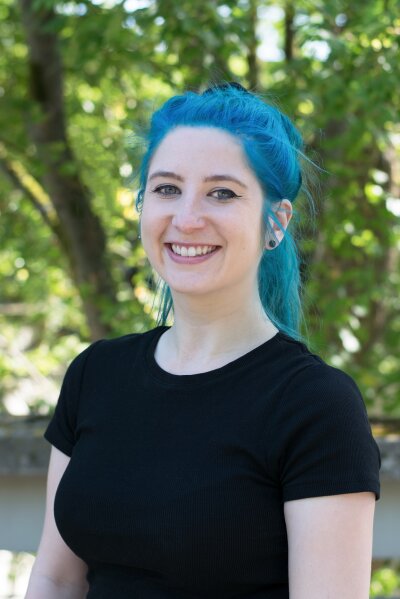
[06.06.25]
ISLS 2025: Team presents in Helsinki

From June 10 to 13, 2025, part of our team will be attending the International Society of the Learning Sciences (ISLS) 2025 in Helsinki, Finland. Prof. Dr. Nikol Rummel, Charleen Brand, Dr. Valentina Nachtigall, Dr. Alisa Maksimova and Anna Radtke will be presenting their research. The contributions will be published after the conference. We will inform you here again as soon as all publications are available. Here is a preliminary overview of the contributions Authors: Maksimova, A., Nachtigall, V., Rummel, N. Title: Learning about Artificial Intelligence in (an Imagined) Museum Setting: Investigating the Effects of Critical and Everyday Context. Authors: Greisel, M., Hornstein, J., Kollar, I., Noroozi, O., Haddadian, G., Alqassab, M., Banihashem, S. K., Khosravi, H., Pozdniakov, S., Schunn, C. D., Yu, Q., & Rummel, N. T Title: Enhancing peer feedback practices with generative AI. Authors: Brand, C., Loibl, K., & Rummel, N. . Title: Learning in Productive Failure: How Knowledge Gap Awareness and Intermediate Knowledge Link Prior Knowledge Activation and Conceptual Knowledge Authors: Menebhi, S, Nachtigall, V., Mertineit, A. K., & Rummel, N. . Title: Do teachers protect their students’ data? A qualitative approach to assessing teachers’ knowledge of data security for future interventions. Authors: Järvelä, S., Rummel, N., Radtke, A., Meyer, J., Yang, S., Schneider, B., Rosé, C. P., Orta-Martinez, M., Peppler, K., Lämsä, J., de Araujo, A., Edwards, J., Sobocinski, M., Roberts, A.-S., Whitehead, R., Papadopoulos, P. M., & Biswas, G. Title: Exploring human-AI interactions across various learning tasks: Diverse perspectives on augmenting learner [Symposium]. Authors: Radtke, A., Serova, K., Osinski, M., Scheffel, M., & Rummel, N. Title: Learners’ Attitudes, Wishes, and Concerns toward Learning Analytics in Higher Education: Students’ Opinions and Teachers’ Views. Read more about ISLS 2025: https://2025.isls.org/
[09.05.25]
Prof. Dr. Nikol Rummel attended the Smart Data & Digital Technology in Education project meeting, hosted by the OECD Centre for Educational Research & Innovation (CERI)
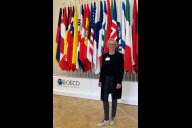
Nikol Rummel attended the Smart Data & Digital Technology in Education project meeting, hosted by the OECD Centre for Educational Research & Innovation (CERI), and takes part in an expert panel on generative AI’s potential impact on learning, teaching, & education management.
[25.03.25]
Keynote by Prof. Dr. Nikol Rummel at the University of Oslo on insights on AI-support for transitions between individual and collaborative learning
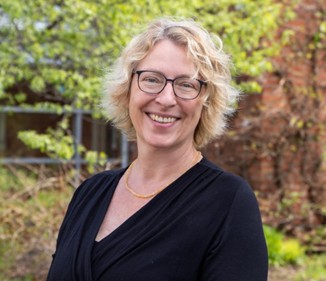
Prof. Dr. Rummel will present research on co-orchestration between AI and teacher in manag-ing collaborative and individual learning modes at the University of Oslo on April 24, 2025.
Abstract:
Enabling seamless transitions between individual and collaborative learning offers great po-tential for enhanced learning but also poses classroom management challenges.
In a U.S. National Science Foundation-funded project, we explored how technology can help teachers manage these transitions. Collaborating with teachers, we developed Pair-Up, a co-orchestration tool that dynamically groups students during shifts between individual and col-laborative activities with intelligent tutoring systems.
In a controlled experiment, we assessed the impact on classroom dynamics and learning out-comes, as well as teachers' and students' perceptions of the technology.
In my talk, I will present an overview of the project, summarize key findings, and discuss impli-cations, challenges, and the evolving role of AI in education.
Rummel, N. (2025, April 24). Insights on AI-support for transitions between individual and collaborative learning. AI-based solutions for individual and collaborative activities in the classroom offers both support for learning and challenges for teaching [Invited Talk]. Lecture organised by the HEDWORK research group and the project TeamLearn - University of Oslo, Oslo, Norway. https://www.uv.uio.no/english/research/groups/hedwork/events/seminar-series/2025/insights-on-ai-support-for-transitions-between-individual-and-collaborative-learning.html
[25.03.25]
Invited Talk by Dr. Astrid Wichmann at the German Institute for Adult Education on possibilities for using AI to support learning in education
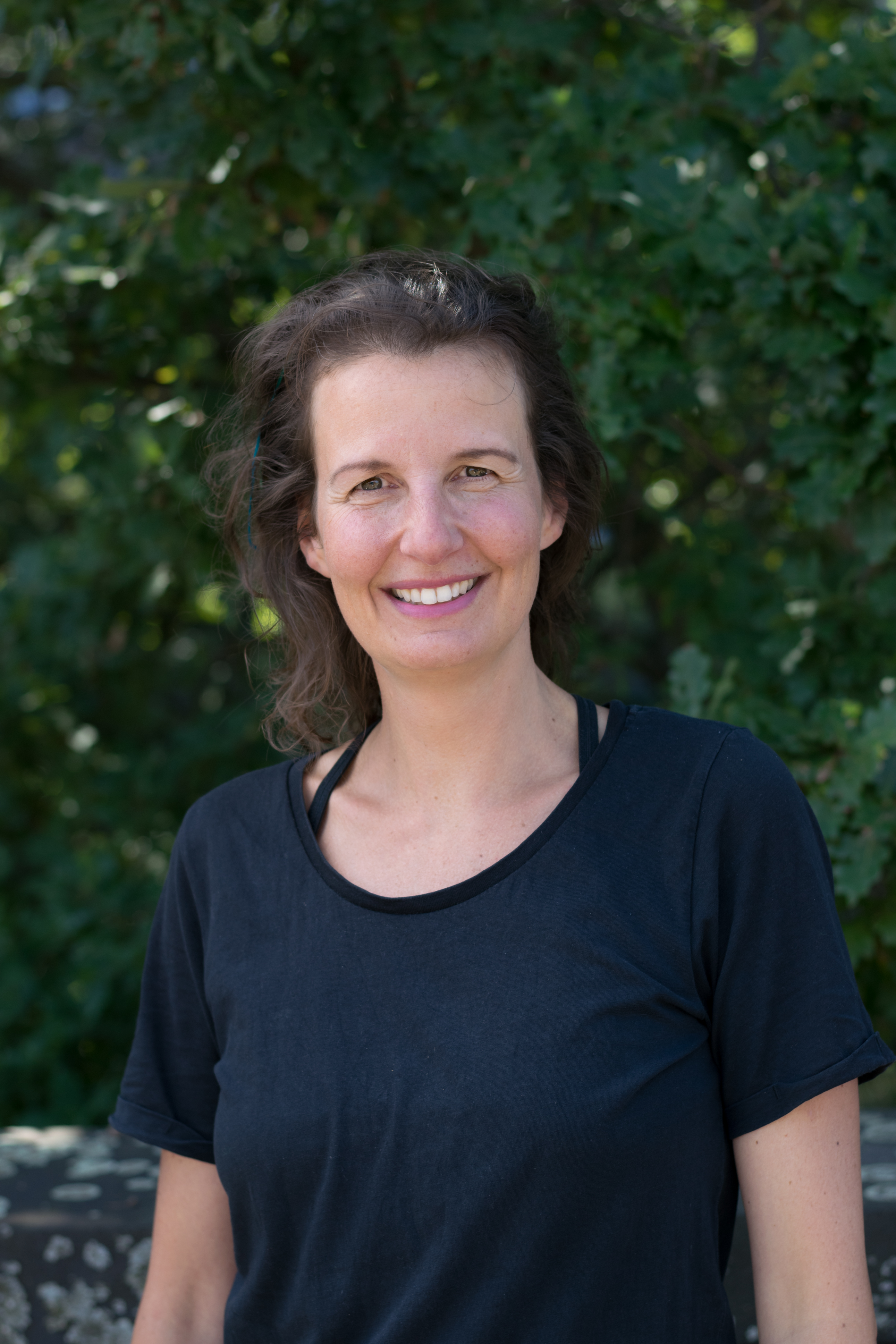
Dr. Astrid Wichmann will give the lecture “Beyond the Myths: How Can AI Be Used to Support Learning in Education?” on April 04, 2025.
Abstract:
AI systems raise great hopes for adaptive and personalized learning. However, their effective use to support learning requires a nuanced perspective—both from a technical and a peda-gogical standpoint. This talk offers a systematic overview of AI applications in education, with a focus on adaptive learning support and the generation of individualized content. Drawing on recent surveys and selected studies, it discusses challenges such as learner overload and difficulties with self-assessment in the context of generative AI.
Wichmann, A. (2025, April 04): Jenseits der Mythen: Wie kann KI lernförderlich im Bildungsbe-reich eingesetzt werden? [Invited Talk]. Themenwoche "Weiterbildung & KI", Deutsches Institut für Erwachsenenbildung – Leibniz-Zentrum für Lebenslanges Lernen, Bonn. https://www.die-bonn.de/dialog-digitalisierung/dialog12
[19.03.25]
Dr. Sebastian Strauß Takes on the Interim Professorship for Educational Psychology and Learning Technology
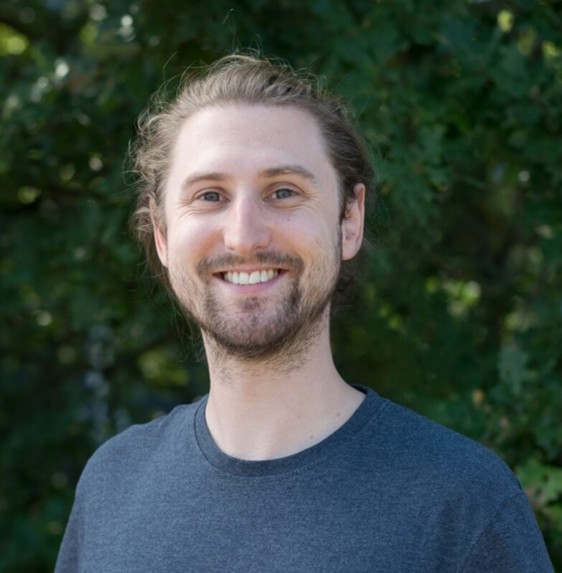
As of March 1, 2025, Dr. Sebastian Strauß has assumed the interim professorship for Educational Psychology and Learning Technology. He has been part of our research group since November 2016 and earned his doctorate summa cum laude in July 2021. Following his Ph.D., he conducted research on topics such as computer-supported collaborative learning (CSCL), metacognition and group regulation, learning analytics, and technology-enhanced learning. We are delighted that Dr. Sebastian Strauß is taking on this important role. His expertise and dedication will greatly enrich our research and teaching in the institute of Educational Research.
[23.01.25]
Prof. Dr. Nikol Rummel is one of the most productive authors in the field of CSCL research
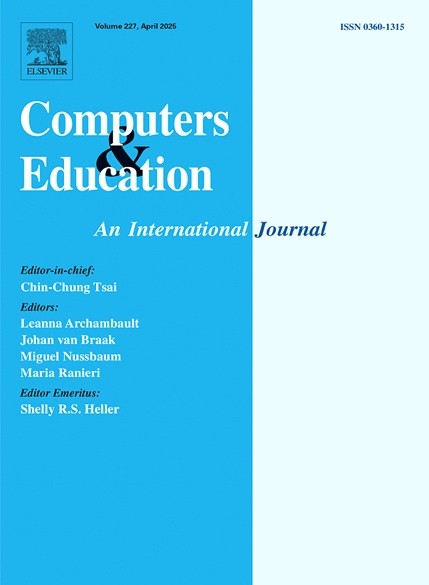
According to the study ‘A Topical Review of Research in Computer-Supported Collaborative Learning: Questions and Possibilities’ (Kaliisa et al., 2025), Prof. Dr. Nikol Rummel is one of the most productive authors in the field of research on computer-supported collaborative learning (CSCL). The study deals with the evolution and state of CSCL research and analyses 6388 documents from the period 1990 to 2022. The study can be accessed via the following link: https://www.sciencedirect.com/science/article/pii/S0360131525000144
[23.01.25]
Interview with Prof. Dr. Nikol Rummel about hybrid intelligence

Prof. Dr. Rummel, member of the International Scientific Advisory Board of the Hybrid Intelligence Program at the University of Oulu, talks about the opportunities of hybrid intelligence in an interview. She highlights the importance of hybrid intelligence, in which humans and AI combine their respective strengths to enhance human capabilities. She also discusses key questions regarding the optimal collaboration between humans and AI, the use of multimodal data while protecting data privacy and ethics, and the development of AI that strengthens human freedom. Prof. Dr. Rummel is confident that the Hybrid Intelligence program can address societal challenges and develop pioneering solutions through excellent research The interview can be found at the following link: https://www.oulu.fi/en/news/sab-member-professor-nikol-rummel-we-need-think-how-ensure-ai-serves-humans-way-empowers-us-and
[06.12.24]
Keynote by Prof. Dr. Nikol Rummel at the “BI.teach – Tag für die Lehre” on artificial intelligence in education
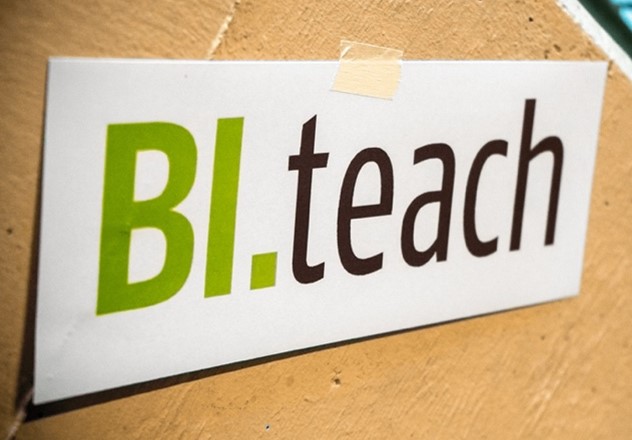
Prof. Dr. Nikol Rummel was invited to give a talk on artificial intelligence in education at the “BI.teach – Tag für die Lehre” (University Bielefeld). Her keynote was entitled “Künstliche Intelligenz in der Bildung: Möglichkeiten, Chancen und eine kritische Diskussion“.
The programme:
The use of Artificial Intelligence (AI) in educational contexts has gained new momentum since the release of ChatGPT at the end of 2022. The press claims that AI will now revolutionise education in a very short time. How realistic is that? In her talk, Prof. Nikol Rummel categorizes technologies that operate under the label of ‘artificial intelligence’ in educational contexts and presents some examples. With a view to the current state of research, she discusses opportunities, risks and limitations of learning and teaching with (text)generative artificial intelligence and other intelligent educational technologies.
Rummel, N. (2024, November 20). Künstliche Intelligenz in der Bildung: Möglichkeiten, Chancen und eine kritische Diskussion [Talk]. BI.teach – Tag für die Lehre 2024, Bielefeld, Germany.
https://www.uni-bielefeld.de/lehre/biteach/bi.teach-2024/keynotes/
[04.12.24]
New Journal Publication by Charleen Brand and Prof. Dr. Nikol Rummel
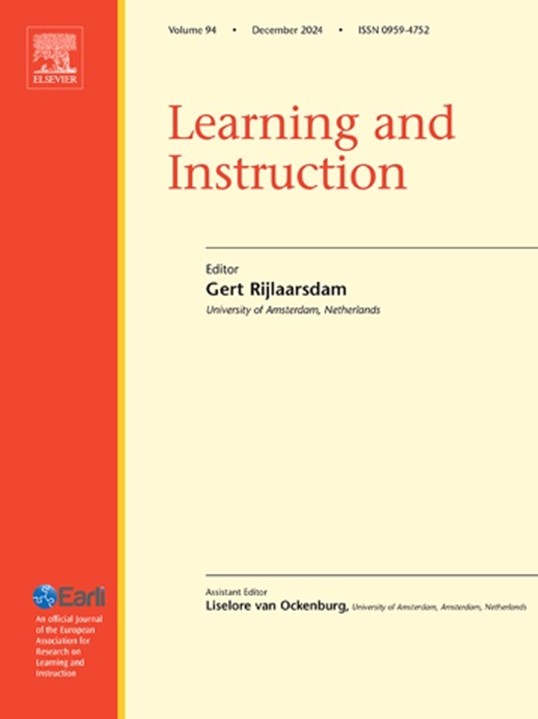
Charleen Brand and Prof. Dr. Nikol Rummel published an article in the Journal Learning and Instruction with the title “Investigating learner characteristics and processes in productive failure and vicarious failure to design adaptive guidance”. Abstract: Background: We investigate learner characteristics and learning processes in two instructional designs with preparatory activities prior to instruction: Productive Failure (PF) and Vicarious Failure (VF). The aim is to develop a first theoretical understanding of PF and VF learners that can inform directions for the design of adaptive support. Methods: Based on an experimental study with 110 secondary school students in mathematics, we examine the effect of students’ learner characteristics in PF (students generating own solution attempts) and VF (students studying these attempts). We assess the learning processes based on think-aloud data from 15 PF-VF-model- observer-pairs, analyzing frequencies and sequences of cognitive processes, using the HeuristicsMiner algorithm. Results: Mathematical ability was related to PF and VF students’ learning, prior knowledge and mathematical self-concept to their learning processes. While both groups showed large overlaps in the frequencies and se- quences of learning processes, VF students displayed a more analytical and PF students a more solution-oriented approach to the task. Metacognitive planning and evaluation behavior was relevant for VF students’ learning, depending on prior knowledge and ability. For PF students, it depended on mathematical self-concept. Conclusions: PF and VF students’ learning as well as frequencies and sequences of their learning processes relates to cognitive and affective learner characteristics. Metacognitive planning and evaluation behavior may require adaptive guidance specifically for learners with low mathematical self-concept in PF or prior knowledge and ability in VF. You can read the article here.
Brand, C., Hartmann, C., Loibl, K. & Rummel, N. (2025). Investigating learner characteristics and processes in productive failure and vicarious failure to design adaptive guidance. Learning and Instruction 95. (online first) https://doi.org/10.1016/j.learninstruc.2024.102052
[14.11.24]
New contribution on how to collaborate in the RUB “Lehreladen” by Dr. Sebastian Strauß

Dr. Sebastian Strauß has written a contribution for RUB’s “Lehreladen” entitled: “Group work and group dynamics”. In this contribution he sketched ways how to best instruct collaboration in learning settings. In his contribution Dr. Strauß summarized how learning in cooperative settings can support domain learning as well as collaboration competence.
Strauß, S. (2024). Gruppenarbeit und -dynamik. Ruhr-Universität Bochum. LEHRELADEN, Planung & Durchführung kompetenzorientierter Lehre.
Follow this link to view Dr. Strauß contribution in the Lehreladen.
[04.11.24]
Dr. Valentina Nachtigall is part of the PostdocLab working group Artificially Intelligent Communication of Science (AICOS)
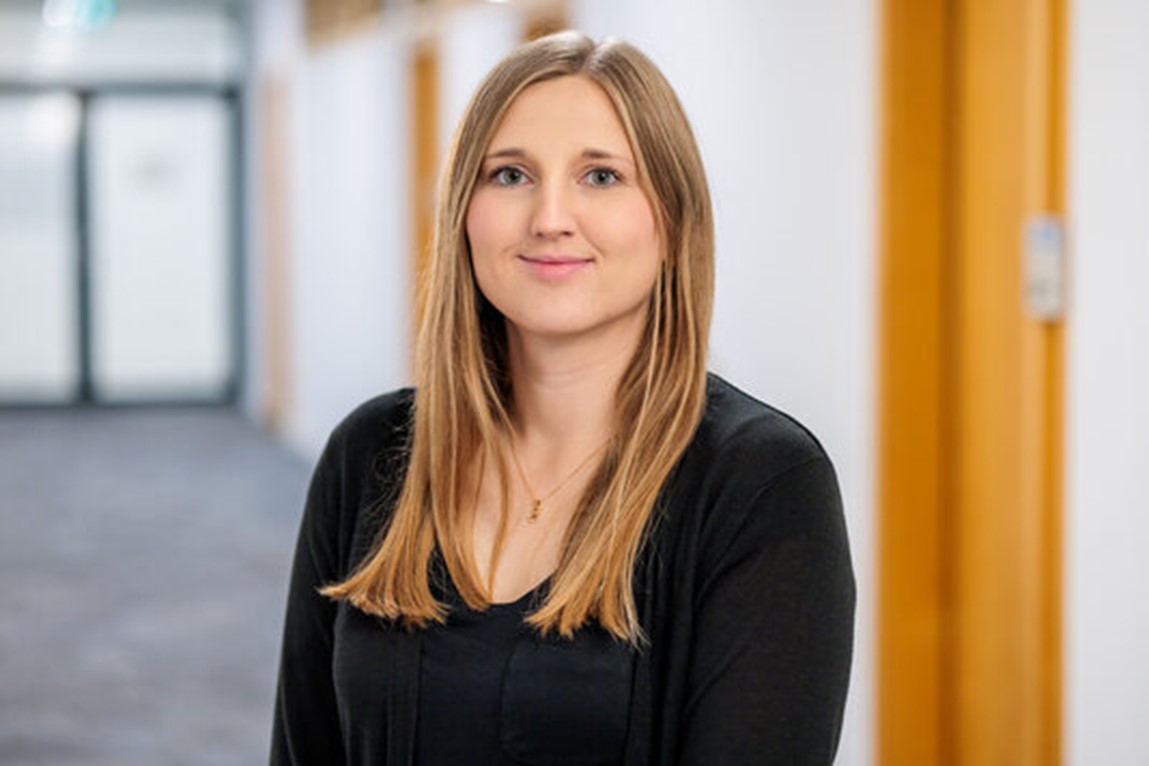
© College UA Ruhr / eventfotograf.in
The AICOS lab explores the role of generative AI in science communication. The aim is to understand how AI-generated content affects recipients' trust, perceptions, knowledge acquisition, and communicative resistance, as well as how AI tools influence stereotypical conceptions of scientists. For this purpose, the AICOS lab employs an interdisciplinary approach, integrating qualitative and quantitative methods from education and communication studies.
You can read more about their research and planned activities here.
[05.11.24]
New Journal Publication by Dr. Valentina Nachtigall
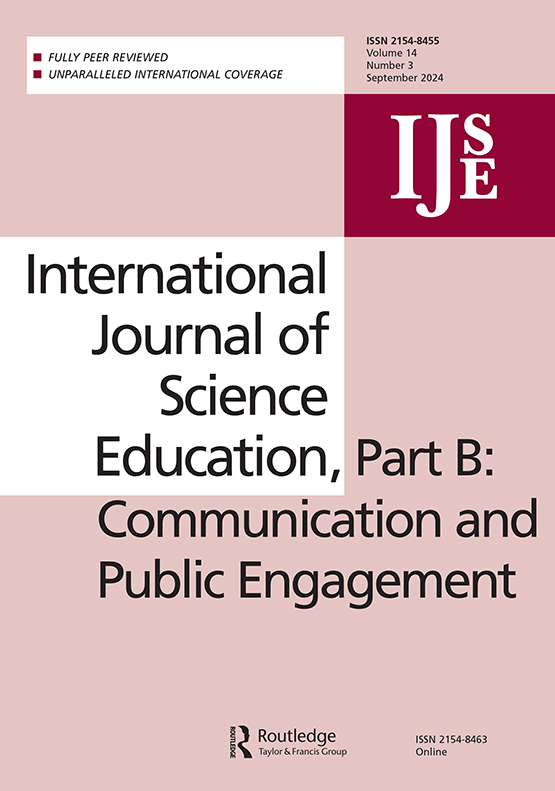
Dr. Valentina Nachtigall has published an article in the International Journal of Science Education. The title of the article is “Examining the impact of video production quality and presenter identity in science communication on knowledge acquisition and attitude change”. Abstract: Scientists are increasingly required to communicate their research to the public despite lacking the necessary resources. We investigated whether scientists need to communicate their research themselves, through resource-intensive science communication videos. In an experimental study (N = 125) with a 2 × 2 design, we compared a professionally produced video with a non-professionally produced video and framed the science communicator either as a scientist or an influencer. The results reflect theoretical considerations regarding the unclear role of professionalization and personalization in the effectiveness of science communication videos, with participants in all four conditions gaining significantly more knowledge and changing their attitudes after watching the video. Thus, professionalism and personalization appear to play a subordinate role in the effectiveness of science communication videos. The findings further demonstrate that professionally developed videos are effective for knowledge acquisition if they are perceived as versatile and entertaining and the science communicator is believed to have a scientific background. In sum, the study contributes to evidence-based research on science communication videos and sheds light on prerequisites for their effectiveness. Nachtigall, V., Krug, M., Kracht, F., Mainka, C., Özcan, F., Reichenberger, S., Renner, G., Siegmund, D. (2024). Examining the impact of video production quality and presenter identity in science communication on knowledge acquisition and attitude change. International Journal of Science Education, Part B, 1–17. https://doi.org/10.1080/21548455.2024.2414358 You can read the article here.
[17.09.24]
New publication in the International Journal of Computer-Supported Collaborative Learning

"The present study contributes to the discussion regarding the role of collaboration support that transfers autonomy to the learners by presenting a comparison of an external collaboration script and reflection scaffold. Our results are promising in that guided reflection scaffolds may be an alternative way of administering information about productive interaction." Abstract: A key challenge in CSCL research is to find ways to support learners in becoming effective collaborators. While the effectiveness of external collaboration scripts is well established, there is a need for research into support that acknowledges learners’ autonomy during collaboration. In the present study, we compare an external collaboration script and a reflection scaffold to a control condition and examine their effects on learners’ knowledge about effective collaboration and on their groups’ interaction quality. In an experimental study that employed a 1× three-factorial design, 150 university students collaborated in groups of three to solve two information pooling problems. These groups either received an external collaboration script during collaboration, no support during collaboration but a reflection scaffold before beginning to collaborate on the second problem, or no support for their collaboration. Multilevel modeling suggests that learners in the reflection condition gained more knowledge about effective collaboration than learners who collaborated guided by an external collaboration script or learners who did not receive any support. However, we found no effect of the script or the reflection scaffold on the quality of interaction in the subsequent collaboration. Explorative analyses suggest that learners acquired knowledge particularly about those interactions that are required for solving information pooling tasks (e.g., sharing information). We discuss our findings by contrasting the design of the external collaboration script and the reflection scaffold to identify potential mechanisms behind scripting and collaborative reflection and to what extent these forms of support foster collaboration skills and engagement in productive interaction. Strauß, S., Tunnigkeit, I., Eberle, J., Avdullahu, A., & Rummel, N. (2024). Comparing the effects of a collaboration script and collaborative reflection on promoting knowledge about good collaboration and effective interaction. International Journal of Computer-Supported Collaborative Learning. Advance online publication. https://doi.org/10.1007/s11412-024-09430-7 You can read the publication here.
[13.08.24]
Dr. Astrid Wichmann holds a lecture at the RUB Teachers Academy

The lecture for teachers will be held in German by Dr. Astrid Wichmann. The topic of the lecture is: "Lehren und Lernen mit Künstlicher Intelligenz: Chancen und Herausforderungen im Unterrich". Interested persons are invited to register for free. The programme (German): Künstliche Intelligenz (KI) ist in der Schule angekommen! Umfragen zufolge sind über 70% der Jugendlichen der Ansicht, dass der Einsatz von KI in Schulen große Chancen bietet (Jugendstudie Vodafone Stiftung, 2024). Lehrkräfte setzen textgenerative KI, aber auch andere KI-Anwendungen, bisher noch zögerlich im Unterricht ein. Ein verantwortungsbewusster und lernförderlicher Einsatz von KI erfordert ein Verständnis der gegenwärtig im Unterricht verwendeten Systeme, ihrer Eigen- schaften und ihres Unterstützungspotentials. In diesem Vortrag soll deshalb ein differenzierter Blick auf ausgewählte KI-Systeme geworfen werden. Es werden verschiedene KI-Anwendungen für den Unterricht vorgestellt und deren Einsatz vor dem Hintergrund empirischer Studien eingeordnet. Zudem wird diskutiert, welche Herausforderungen sich aktuell beim Einsatz von KI im Unterricht stellen, sowie welche Chancen KI-Anwendungen für die Unterstützung von Lehrkräften bieten. The lecture will take place on Wednesday, 28 August 2024 at 6 pm in Bochum. For registration and further information please click here
[13.08.24]
New Journal Publication by Dr. Valentina Nachtigall and Prof. Dr. Nikol Rummel
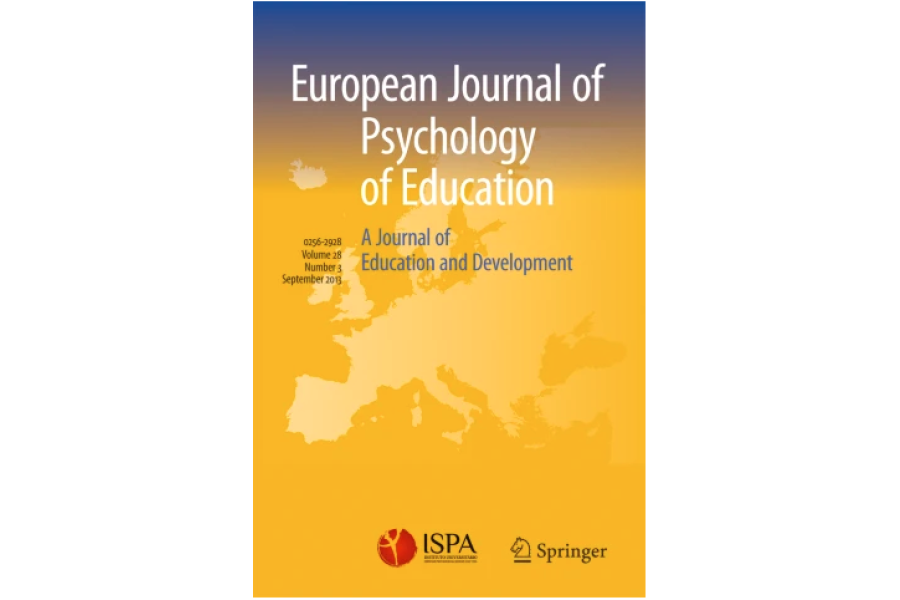
Dr. Valentina Nachtigall, Prof. Dr. Nikol Rummel and a colleague have published an article in the European Journal of Psychology of Education. The title of the article is "The authenticity dilemma: towards a theory on the conditions and effects of authentic learning". Abstract: A highly authentic learning setting is likely to trigger positive motivational and emotional reactions due to its emphasis on promoting the acquisition of knowledge that is connected and transferable to real-world phenomena outside the learning environment. However, a high level of authenticity is usually accompanied by a high level of complexity due to the complexity inherent in the real world. This complexity can be overwhelming for learners and can hamper or even prevent cognitive learning outcomes. Consequently, to help learners cope with this complexity, they need some kind of instructional support. By building a high level of support into the learning setting in order to promote cognitive learning outcomes, the level of authenticity and thereby the effects of authenticity on motivational outcomes may, however, in turn be reduced. In the present conceptual paper, we refer to this tension between authenticity and complexity, on the one hand, and instructional support, on the other hand, as the “authenticity dilemma”. Based on existing empirical evidence from previous studies, we (1) outline this dilemma, (2) discuss ways to reconceptualize it, and (3) derive implications regarding the conditions and effects of authentic learning. Finally, we discuss the findings of the studies included in the special issue “Perspectives on Authentic Learning” through the lens of the authenticity dilemma. Nachtigall, V., Shaffer, D. W., & Rummel, N. (2024). The authenticity dilemma: towards a theory on the conditions and effects of authentic learning. European Journal of Psychology of Education. https://doi.org/10.1007/s10212-024-00892-9 You can read the article here
[13.08.24]
Prof. Dr. Nikol Rummel talks about AI in the classroom at the PH Freiburg podcast

Prof. Dr. Nikol Rummel is a guest at the podcast of the University of Education Freiburg (Pädagogische Hochschule Freiburg). The podcast is in German and the title is "#2 KI im Klassenzimmer: Wie Technologie Lehrkräfte bei dynamischen Übergängen im Unterricht unterstützen kann". You can listen to the podcast here
[12.08.24]
New book chapter by Anna Radtke and Nikol Rummel published!

Anna Radtke, Prof. Dr. Nikol Rummel, and others published a chapter in the context of the KI:edu-NRW project. The chapter is in German and the title is "Learning Analytics in der Erziehungswissenschaft: Lerndatenbasierte Förderung von Selbstregulation in einem Statistikkurs". Abstract (German): Lerndatenanalysen (LA) bieten ein breites Spektrum an Möglichkeiten, Lernende in digital gestützten Lernsettings zu unterstützen und dabei gezielt auf ihre individuellen Bedürfnisse einzugehen. Das hier vorgestellte Teilprojekt verfolgte das Ziel, ein prototypisches LA-basiertes Unterstützungskonzept zur Förderung der Selbstregulationskompetenzen von Studierenden zu entwickeln. Das Unterstützungsangebot richtete sich an Studierende eines Statistikmoduls im Studiengang Erziehungswissenschaft. Handlungsleitende Prämisse war dabei, Studierende und Lehrende maßgeblich an der Entwicklung des Unterstützungskonzepts zu beteiligen und ihre Bedarfe, Wünsche sowie mögliche Vorbehalte gegenüber einer datenbasierten Lernunterstützung zu berücksichtigen. Damit sollte sichergestellt werden, dass in der Praxis relevante Faktoren bei der Entwicklung und Implementation der Unterstützungsmaßnahmen ausreichend berücksichtigt werden. Die für das Teilprojekt formulierten Ziele wurden im Zuge von drei Arbeitspaketen verfolgt: (AP1) Verortung und Ausrichtung des Vorhabens, (AP2) Befragung von Studierenden und Lehrenden zu Einstellungen, Bedarfen und Vorbehalten hinsichtlich des Einsatzes von LA in der Hochschullehre sowie darauf aufbauend (AP3) Entwicklung, Erprobung und Evaluation einer prototypischen datenbasierten Lernunterstützung im Statistikmodul. Insgesamt bewerteten die Teilnehmenden des Statistikmoduls die Nützlichkeit des Unterstützungsangebotes positiv. Eines der wesentlichen Unterstützungselemente – die Prompt-basierte Unterstützung – erwies sich als wirksam für die Förderung von motivationalen Selbstregulationskompetenzen. Die Erkenntnisse aus dem Projekt unterstreichen die Notwendigkeit einer multi- und interdisziplinären Reflexion und Zusammenarbeit bei der Entwicklung und Integration von LA-basierter Unterstützung im Hochschulkontext. Radtke, A., Osinski, M., Serova, K., Scheffel, M., Rummel, N. (2024). Learning Analytics in der Erziehungswissenschaft: Lerndatenbasierte Förderung von Selbstregulation in einem Statistikkurs. In: Salden, P., Leschke, J. (eds) Learning Analytics und Künstliche Intelligenz in Studium und Lehre. Doing Higher Education. Springer VS, Wiesbaden. https://doi.org/10.1007/978-3-658-42993-5_3 You can find the chapter here
[12.08.24]
Best Paper Award for Nikol Rummel and colleagues

Best Paper Award for the EDM Paper: “Combining Dialog Acts and Skill Modeling: What Chat Interactions Enhance Learning Rates During AI-Supported Peer Tutoring?” Abstract: Peer tutoring can improve learning by prompting learners to reflect. To assess whether peer interactions are conducive to learning and provide peer tutoring support accordingly, what tutorial dialog types relate to student learning most? Advancements in collaborative learning analytics allow for merging machine learning-based dialog act classification with cognitive modeling of fine-grained learning processes during problem-solving to illuminate this question. We estimate how much peer-tutored students improve in a collaborative tutoring system for linear equation-solving in K-12 mathematics in relationship to the peer dialog types they engage in. This work establishes a reliable BERT classifier with an accuracy of close to 80\% to classify chat messages during peer tutoring into minimal, facilitative, and constructive, serving as instructional factors. Based on data from 394 students, peer tutor dialog was rare. Only 8\% of tutee problem-solving steps were followed by peer tutor chat messages. Still, facilitative tutor dialog was associated with an increased tutee learning rate. Meanwhile, tutor dialog classified as constructive was associated with lower learning rates. Content analysis suggested that such dialog often reinforced incorrect solutions, gave away answers, or was unrelated to the taught content. Hence, considering problem-solving solution contexts could improve the assessment of peer tutoring dialog. Peer tutors engaging in little dialog could be attributed to the high cognitive demand of learning to tutor while still learning the content they tutor on. Providing peer tutors with instructional support to engage in constructive dialog may improve the tutee's learning. Borchers, C., Yang, K., Lin, J., Rummel, N., Koedinger, K. R., & Aleven, V. (2024). Combining Dialog Acts and Skill Modeling: What Chat Interactions Enhance Learning Rates During AI-Supported Peer Tutoring? Proceedings of the 17th International Conference on Educational Data Mining (EDM). Atlanta, GA, USA. BEST STUDENT PAPER AWARD The publication can be found in the proceedings of the EDM conference: https://educationaldatamining.org/edm2024/proceedings/2024.EDM-long-papers.10/index.html
[19.06.24]
New publication by Katharina Teich, Vanessa Loock and Prof. Dr. Nikol Rummel about self-regulated learning
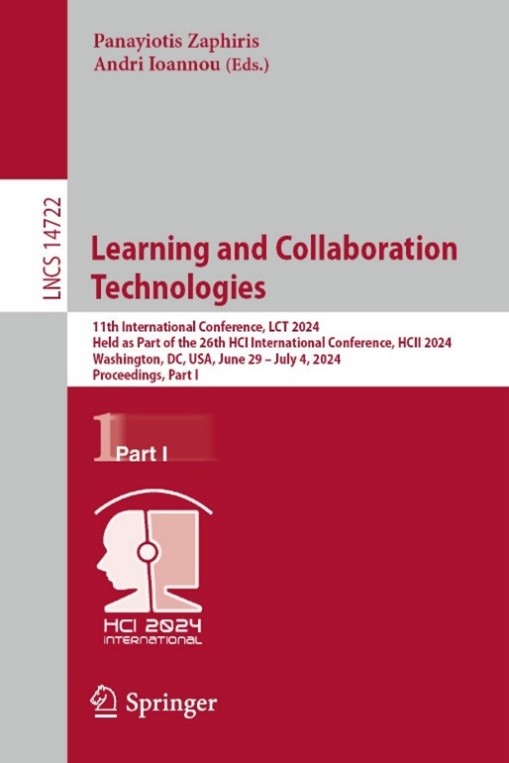
Katharina Teich, Vanessa Loock and Prof. Dr. Nikol Rummel published an article with the title User-Centered Design of Adaptive Support in a Continuing Education Online Course: Findings from a Design-Based Research Process. In the "Group work and computers" workshop, research fellows Arlind Avdullahu and Martin Bordewieck gave the pupils an insight into educational science both as a study subject and as a working field, with a focus on the everyday working life of researchers at the university. The students learnt about the quantitative research process from brainstorming to publication and, thus, got a fairly thorough overview of this career path in educational science. Abstract: Online courses in continuing education often entail a self-paced format, resulting in high levels of autonomy for adult learners. This autonomy, however, requires learners to self-regulate their learning process. Research has shown that self-regulated learning (SRL) in online courses can be challenging, and support might therefore be needed. While there is evidence that adaptive support systems can improve students’ SRL in formal school and higher education settings, little is known about adaptive SRL support in continuing education online courses. The present paper addresses this research gap applying a design-based research approach. First, we re-analyzed an existing dataset that comprises survey data of 60 adult learners from four course iterations and matched survey measures on learning processes with learners’ perceptions of their SRL strategy use. The analyses revealed that adult learners especially struggled with structuring their learning environment and managing learning time. Based on these findings, adaptive support features were iteratively designed to address the identified challenges. We developed a course overview, an adaptive learning-time display, and adaptive highlighting of recommended content. Second, we investigated learners’ perceptions of the design and functionality of these features by means of interactive co-design sessions. Finally, initial usability testing with students was conducted. Teich, K., Loock, V., Rummel, N. (2024). User-Centered Design of Adaptive Support in a Continuing Education Online Course: Findings from a Design-Based Research Process. In: Zaphiris, P., Ioannou, A. (eds) Learning and Collaboration Technologies. HCII 2024. Lecture Notes in Computer Science, vol 14722. Springer, Cham. You can read the paper here.
